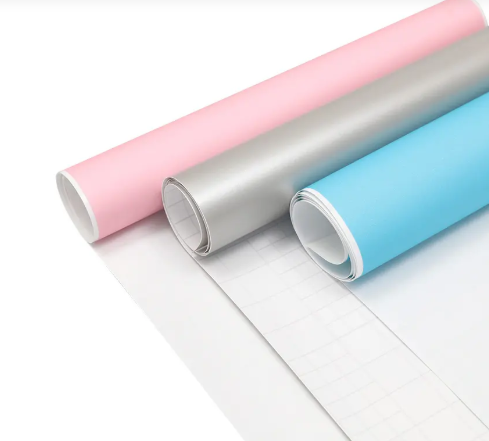Understanding Window Film and Privacy Needs
How Window Film Balances Visibility and Natural Light
Window films are a vital innovation designed to balance visibility and natural light while enhancing privacy. They achieve this by selectively filtering light to allow soft illumination inside, blocking direct external views, thus acting as a shield from the outside world. Through the use of reflective, tinted, or frosted materials, advanced optics enable this technology to provide privacy at various times of the day. Such films preserve up to 80% of natural sunlight, significantly improving interior environments without intruding on an individual's personal space. This functionality ensures that users can enjoy bright spaces without sacrificing their privacy, a common concern for homes and offices alike.
Common Scenarios Requiring Privacy-Focused Window Solutions
Privacy-focused window solutions are essential in several everyday scenarios, particularly in residential and office settings. Residential spaces, like bathrooms and bedrooms, often require window treatments that provide privacy without darkening the interiors. Office environments, on the other hand, frequently need privacy for meeting rooms and workstations to ensure confidentiality and productivity. In urban settings heightened pedestrian traffic near buildings necessitates enhanced privacy measures to shield occupants from onlookers. Window films are a popular choice in these situations, providing an effective barrier against prying eyes while maintaining a comfortable level of natural light within the space. This makes them an efficient and aesthetic solution for diverse privacy challenges.
Types of Privacy Window Films That Preserve Light
Frosted and Etched Films for Diffused Light
Frosted films are a popular choice for those who seek privacy without sacrificing daylight. These films scatter light, creating an elegant blur effect that offers a degree of privacy while still allowing natural light to enter the space. Ideal for environments such as bathrooms or offices, frosted films enhance aesthetic appeal with their matte finish. On the other hand, etched films cater to more decorative needs, providing an intricate design while maintaining visibility into commercial spaces like storefronts. Both types offer the added benefit of style alongside privacy.
Tinted Films with Light-Transmitting Properties
Tinted films are adept at balancing privacy with light. By allowing natural light to penetrate while preventing outside visibility, they ensure a bright atmosphere indoors. Available in various tint levels, these films cater to personal preferences, where lighter tints maintain a brighter ambiance during the day. Whether used in residential settings or commercial establishments, tinted films provide an effective solution for creating private yet vibrant spaces.
Decorative Patterns for Style and Function
Decorative window films offer a unique blend of style and functionality, available in a variety of patterns that not only conceal views but enhance interior design. From simple textures to complex designs, decorative films can be customized to suit the aesthetic needs of a space. Businesses often utilize these films for branding purposes, integrating logos or motifs to maintain privacy while contributing to the overall design. Through personalization, decorative films continue to play a role in both privacy maintenance and visual enhancement.
Benefits Beyond Privacy: UV Protection and Glare Reduction
Safeguarding Interiors While Maintaining Brightness
Quality window films offer a multitude of benefits beyond privacy, including exceptional UV protection. These films can block up to 99% of harmful UV rays, significantly lowering the risk of fading for furniture, floors, and artwork. This protection extends to people as well, decreasing the likelihood of skin damage due to UV exposure. In addition to UV protection, many window films improve energy efficiency by enhancing thermal performance. By helping to regulate indoor temperatures, they lead to reduced energy costs, ensuring a comfortable living or working environment without compromising the brightness of natural light.
Improving Visual Comfort in Sunny Spaces
Glare reduction is another significant advantage of using window films. The bright sunlight that fills a room can often lead to headaches and visual discomfort. Window films are designed to minimize this glare, creating a more comfortable and visually pleasing environment. Studies have shown that reducing glare not only improves comfort but also boosts productivity and overall well-being in both residential and commercial settings. By welcoming sufficient light while cutting down on harsh reflections, window films contribute to a serene and efficient workspace or home environment, aligning with efforts to balance comfort and functionality.
Installation Considerations for Optimal Results
Professional Application vs. DIY Approaches
A key decision in window film installation is choosing between professional application and DIY methods. Hiring professionals ensures a flawless application, optimizing the film's effectiveness and longevity. Experts have the knowledge and tools to avoid common installation issues such as bubbles or misalignment. In contrast, DIY approaches, while cost-effective, may lead to early degradation of the film, requiring potentially expensive replacements. Therefore, if long-term performance is a priority, professional installation might be the best choice.
Measuring Window Dimensions for Full Coverage
Accurate measurement is crucial to achieving effective window film installation. Proper dimensions prevent suboptimal coverage, which can compromise the film's intended benefits such as UV protection and privacy. It's essential to consider the window frame, sills, and any glass size variations to ensure comprehensive coverage. Even slight miscalculations can leave gaps that reduce the film's effectiveness. To achieve optimal results, consider taking meticulous measurements or consulting with an expert to guarantee complete installation.
Maintaining Privacy Without Darkening Rooms
Adjusting Film Opacity Levels
Window films with adjustable opacity offer a dynamic solution for maintaining privacy without sacrificing natural light. These films empower homeowners to customize privacy levels throughout the day according to their unique needs. Through recent technological advancements, films are now available that can shift from clear to opaque with ease, providing maximum flexibility and comfort. For instance, during the day, a homeowner may choose a more opaque setting for greater privacy, while at night, the film can turn clear to allow a view out into the garden. Such innovative films enhance home environments by adapting to different privacy needs while ensuring rooms remain filled with natural light.
Strategic Placement for Light Optimization
Strategically placing window films is key to optimizing natural light while ensuring privacy. Proper alignment of window films at specific angles can enhance light distribution across a room, making spaces appear larger and more inviting. Additionally, films can be selectively applied to certain window sections, allowing specific areas to remain transparent and unshielded. This selective application is ideal for scenarios where natural light is desired in living spaces, such as by allowing light through the upper parts of windows while covering the lower halves for privacy. Through meticulous planning and smart placement, window films can create a pleasant balance between luminosity and personal privacy.
FAQ
What types of offer privacy without darkening rooms?
Frosted, etched, and tinted films are popular choices that provide privacy while allowing natural light to enter the space. Decorative films can also be tailored for aesthetic needs without compromising lighting.
Can block UV rays?
Yes, quality window films can block up to 99% of harmful UV rays, protecting interiors from fading and decreasing the likelihood of skin damage.
Is professional installation of window films necessary?
While DIY methods are available, professional installation is recommended for optimal results and long-term performance, ensuring a flawless application without common issues like bubbles.

